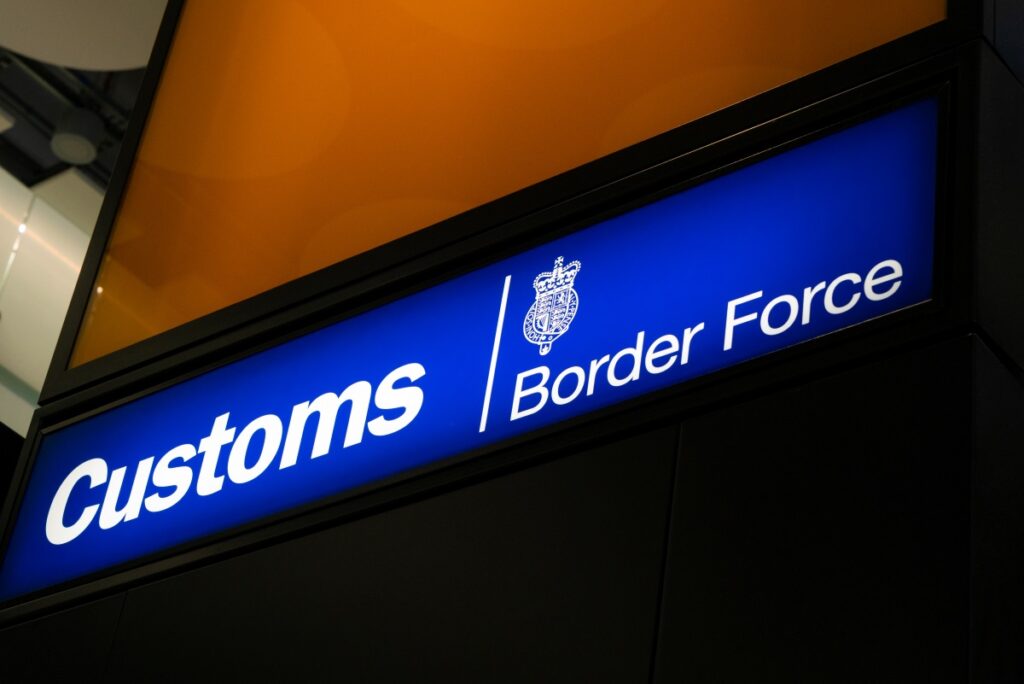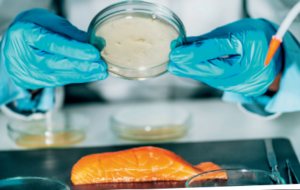Taking back control

Physical checks on plant and animal products imported from the EU into the UK will start from 30 April. Will the UK’s seafood exporters feel that they have a level playing field at last? Sandy Neil investigates
The UK left the EU’s Single Market and Customs Union on 31 December 2020, leaving the UK and EU with separate customs and regulatory regimes.
On New Year’s Day 2021, the EU applied its usual third-country regime to goods imported from Great Britain (GB) to the EU to ensure correct taxes (for example, tariffs, VAT and excise duty) are paid, safety and security obligations are fulfilled, and standards in food safety and disease control are met. Businesses in GB exporting to the EU therefore face border checks but the UK repeatedly delayed applying its own third-country regime to goods entering from the EU, leaving GB businesses subject to paperwork and costs, which EU businesses exporting to the UK largely avoid.
There has been alarm among some industries, such as the veterinary sector and domestic food producers, that the absence of full controls is making the UK vulnerable to food fraud and animal disease, explains the think tank UK in a Changing Europe. Stricter controls on UK exports to the EU compared to EU imports into the UK has also put British domestic industries and suppliers at a disadvantage. This is because it creates an “uneven playing field” for British traders, such as farmers, as they are subject to expensive and time-consuming checks on their exports to the EU, while competing businesses in the EU can export to the UK without similar barriers.
Trade has shrunk, recent figures show. “Trade between the EU and the UK had been tariff-free and frictionless,” rued a European Parliament paper in February. “Following the entry into force of the EU-UK Trade Cooperation Agreement (TCA) in 2021 and the withdrawal of the UK from the EU customs union, the trading of goods between the parties has become more burdensome. This has been manifested in trade figures, with UK imports to and exports from the EU both shrinking after Brexit.”
Brexit has cost Scotland up to £100m each year in “lost” salmon exports, Salmon Scotland Chief Executive Tavish Scott told MSPs on the Constitution, Europe, External Affairs and Culture Committee in March, as part of their inquiry into the TCA.
“Scottish salmon is the UK’s largest food export, but farming companies have faced increased red tape and costs triggered by the departure from the EU in January 2020,” the trade body said. “In 2019, there were more than 53,000 tonnes of Scottish salmon exported to the bloc, with the figure falling to 44,000 tonnes in 2023.
“Export values to the EU were only down 3% to £356m because strong global demand drove up prices, but if the sector had maintained volumes at 2019 levels, then sales would have been above £430m. That means there has been a net ‘loss’ of around £75m or up to £100m had the sector grown at the rate previously expected.
“The Brexit impact of lost sales does not include the direct £3m-a-year cost to farming companies because of the lack of an e-certification scheme.”

UK-EU trade
Race to the BTOM
This year marks another phase in “the introduction of administrative burdens on trade”, notes the European Parliament, “in the form of additional customs rules and checks when exporting goods, particularly agricultural goods, to the UK, with the Border Target Operating Model (BTOM) being gradually implemented by the UK.
“On 31 January 2024, the fourth anniversary of Brexit, the first phase of the UK BTOM started, after being delayed by the UK Government five times, with the introduction of health certification on imports of certain agri-foods, animals and plants and their products from the EU. The BTOM will be phased in in three steps, with physical checks commencing in April 2024.”
What is the BTOM? “The new model will introduce a new global risk-based system of controls,” Baroness Neville-Rolfe, Minister of State at the Cabinet Office, told the London Chamber of Commerce. The categorisation is based on the inherent risk the commodity poses to animal health, food safety and biosecurity, and public health, alongside the risks specific to the country of origin, for example, the prevalence of pests and diseases, and the standard of official health controls.
“For instance, low-risk goods – such as tinned salmon – will not need to have health certificates or routine border checks,” she said. “For high- and medium-risk goods – such as fresh meat and plants for planting – we will need the assurance certificates provide along with proportionate checks on arrival.”
The new regime will have a “negligible impact on food prices”, according to theUK Government.
The government states: “The model will minimise costs for traders and consumers. Government analysis estimates traders will save around £520m per annum under the new model, while the inflationary impacts on food for consumers will be, at most, less than 0.2 percentage points over a three-year period.”
Three potential outcomes of the new border controls have been predicted, lists UK in a Changing Europe. First, food industry bodies say the BTOM will increase in food prices due to the costs to businesses of certification and custom declarations, as well as the rising flat-rate inspection fee (from £20 to £43) on each consignment of food coming from the EU.
Second, some expect many EU businesses will stop or reduce their exports to the UK due to the increased time and cost. When the EU implemented their full border controls on goods from GB, many UK businesses reacted in that way – and the UK is a less significant market for EU suppliers than the EU is for UK ones.
Trade associations also warn that a lack of vets in the EU (who are needed to sign off consignments) could curtail supplies. The new controls are also likely to be especially challenging for small EU businesses, who may lack the resources to complete the necessary paperwork and face the same flat-rate inspection fee as bigger firms exporting much larger consignments. This could mean goods from many smaller EU producers disappearing from British shelves.

Examining seafood
What comes next?
What has been the BTOM’s impact for EU and GB producers so far? “Norway is the top exporter of seafood to the UK, holding an estimated 20% share of seafood imported to the market (2023),” said the Norwegian Seafood Council. “For Norwegian seafood exporters, it is primarily aquaculture products and processed products that are affected when it comes to health certificates, and which end up in the medium-risk category where the new requirement applies. However, with the new risk categories, pelagic fish such as mackerel are also met with a health certificate requirement. The fees will be applicable from April and could affect the cost in some way, for example, the inspection fee and the border control post charge. It remains to
be seen if there will be price increases for consumers.”
On the British side, the move “delivers more certainty and stability to the entire export/import process,” said trade body Seafood Scotland. “However, it will add a layer of complexity and risk that may slow down trade between the UK and the EU. This could have a negative impact on supply chains and extend timescales for end-to-end deliveries. Costs may rise for intermediate processors based in the UK because of the additional red tape required for products arriving from the EU. It also risks disincentivising EU producers supplying the UK market as margins may be squeezed by the additional costs of complying with BTOM requirements.”
Will the BTOM level the playing field? “It’s too early to tell right now,” Seafood Scotland said. “That judgement can only be made when the BTOM has been fully implemented. At that point, if EU exporters face the same demands to get the certification ‘just right’ (everything 100% in order just as UK exporters have to do now) and also have to undergo rigorous physical and documentation checks to send their products to the UK, they are likely to feel the same pressures that UK producers are feeling now. Hopefully, that realisation will prompt both parties to have constructive discussions about minimising these processes.”

